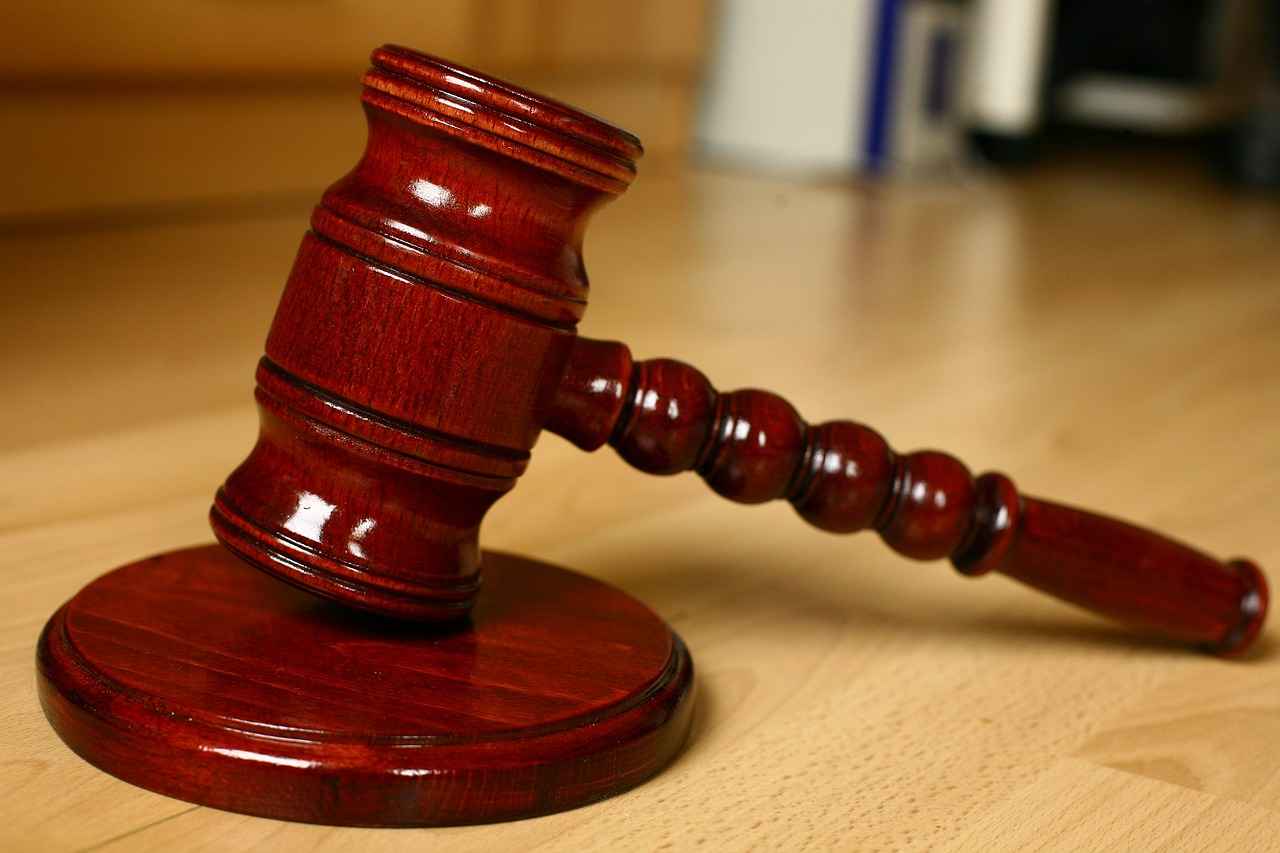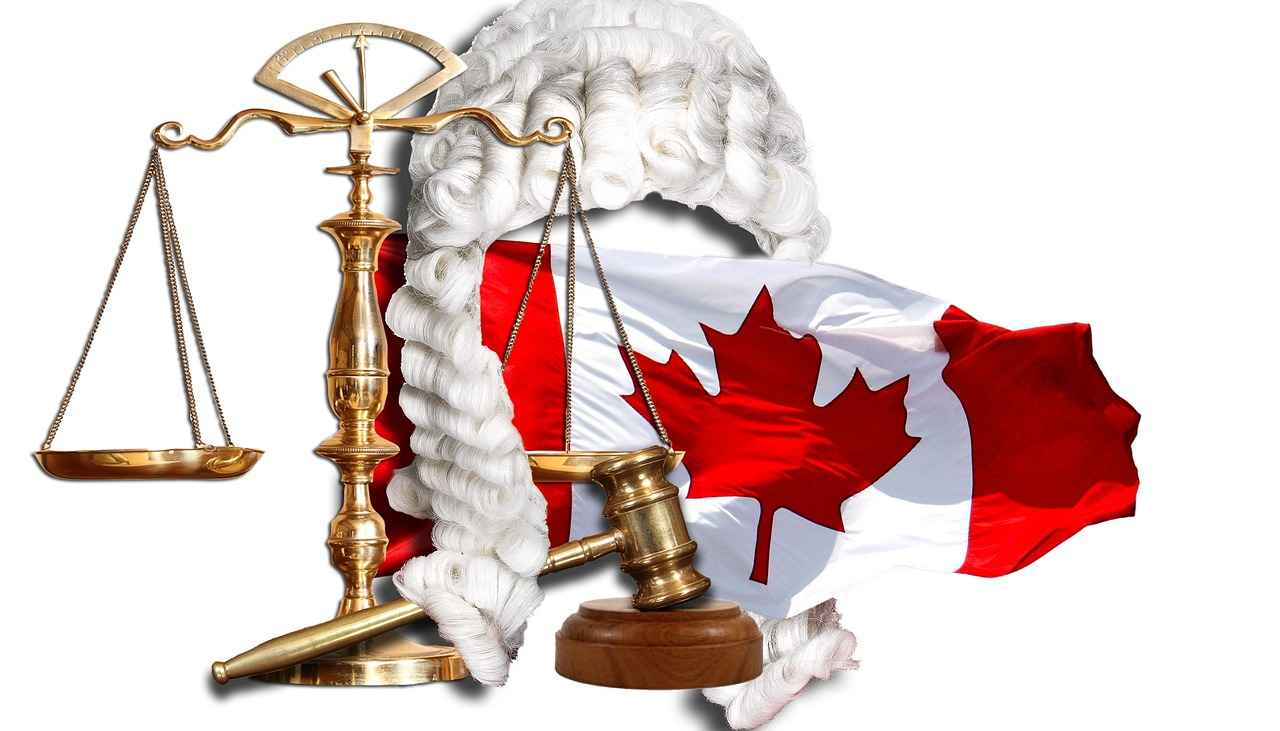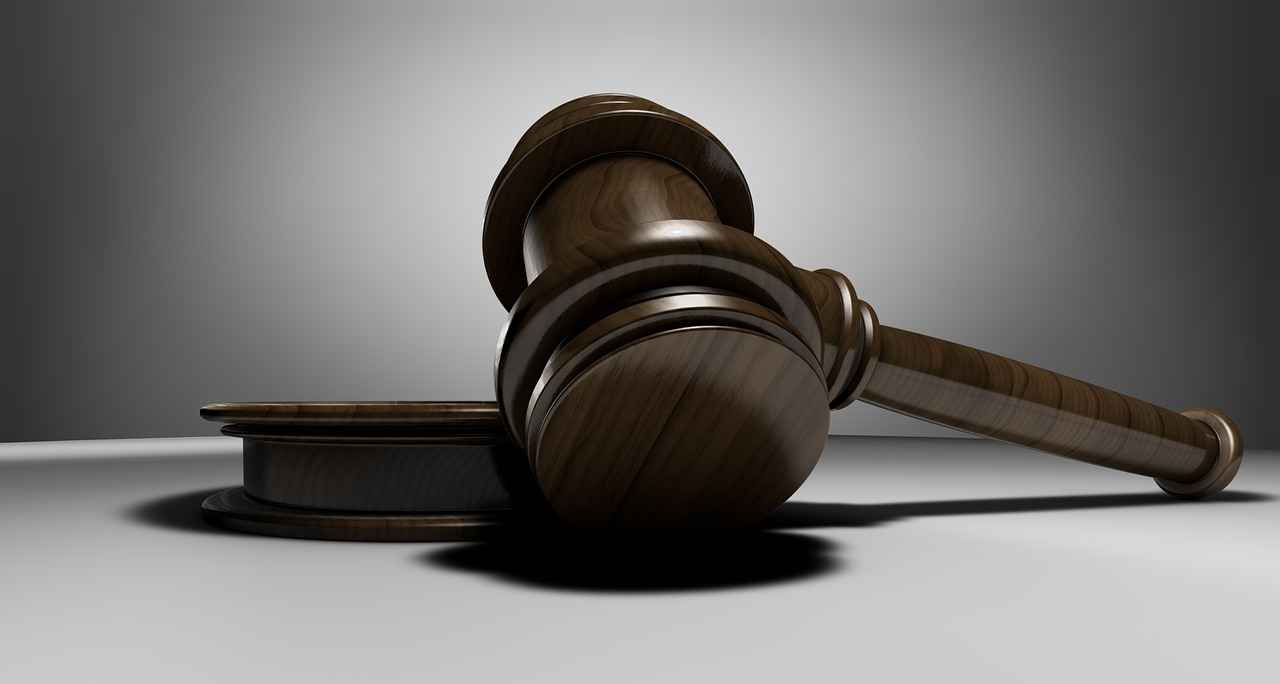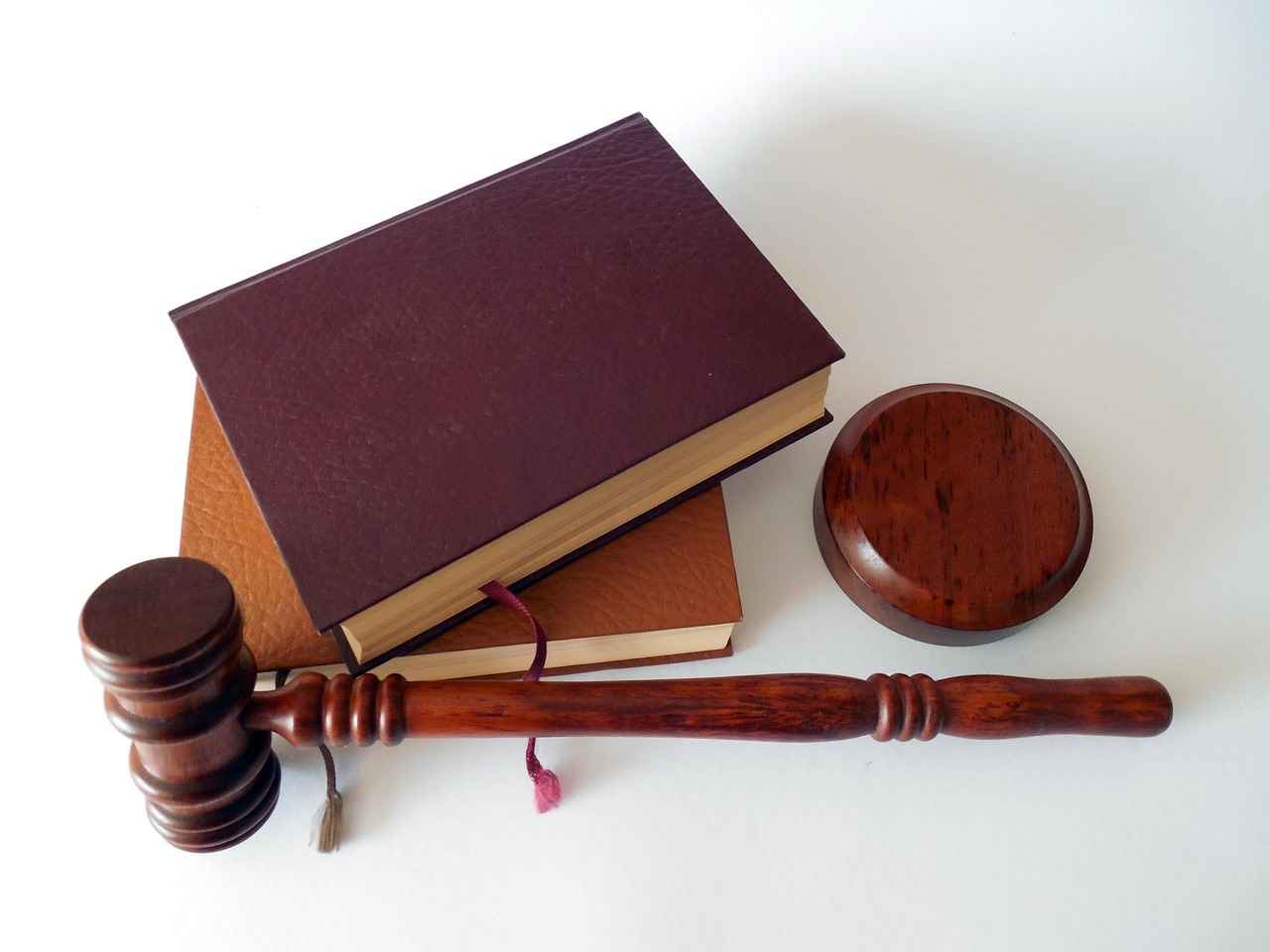This article provides a comprehensive guide on the most common types of legal cases in the U.S. and how to find qualified lawyers in Charlotte, North Carolina.
When faced with legal issues, it is crucial to understand the types of cases you may encounter and how to find the right legal representation. Below, we delve into various legal case types and provide expert advice on selecting the best attorneys.
Understanding Personal Injury Cases
Personal injury cases arise when individuals seek compensation for injuries due to another’s negligence. These can include car accidents, slips and falls, and workplace injuries. To find a qualified personal injury lawyer in Charlotte, look for those with a successful track record, positive client reviews, and experience in similar cases.
Medical Malpractice: What You Need to Know
Medical malpractice occurs when healthcare professionals fail to meet the standard of care, resulting in patient harm. When searching for a medical malpractice attorney, prioritize those with specialized experience in medical cases and a solid understanding of healthcare laws.
Breach of Contract: Legal Implications and Remedies
Breach of contract cases arise when one party fails to fulfill their contractual obligations. To navigate these cases effectively, seek attorneys who specialize in contract law and have experience with the specific type of contract involved.
Navigating Property Disputes
Property disputes often involve disagreements over ownership or land use. It’s essential to find a lawyer familiar with real estate law and local regulations to help resolve these conflicts efficiently.
Landlord-Tenant Disputes: Rights and Responsibilities
Landlord-tenant disputes can arise over lease agreements or property conditions. To address these issues, seek attorneys who specialize in landlord-tenant law and can provide guidance on both parties’ rights and responsibilities.
Defamation: Understanding Libel and Slander
Defamation cases involve false statements that harm an individual’s reputation. Look for attorneys with expertise in media law and experience in handling libel and slander cases to navigate these complex issues effectively.
Employment Disputes: Common Issues and Solutions
Employment disputes can stem from wrongful termination, discrimination, or wage issues. When searching for an employment lawyer, consider those with a strong background in labor law and a proven history of representing employees successfully.
Product Liability: Holding Manufacturers Accountable
Product liability cases arise when consumers are injured by defective products. Seek attorneys who specialize in this area and have experience dealing with manufacturers and safety regulations.
Wrongful Death: Seeking Justice for Loved Ones
Wrongful death claims are pursued when a person’s death is caused by another’s negligence. It’s vital to find compassionate lawyers who understand the emotional toll and can guide families through the legal process.
Class Action Lawsuits: When to Join Forces
Class action lawsuits allow groups of individuals to sue collectively. Look for attorneys who have experience in class action cases and can demonstrate a history of successful outcomes.
Assault and Battery: Legal Definitions and Consequences
Assault and battery are criminal offenses that may also lead to civil litigation. Seek attorneys who specialize in criminal defense and have experience in personal injury claims related to these offenses.
Drug Offenses: Navigating Legal Challenges
Drug offenses encompass a range of crimes related to illegal substances. When facing drug charges, it’s critical to find a lawyer with a strong background in criminal defense and drug law.
Theft and Burglary: Legal Distinctions and Penalties
Theft and burglary are serious offenses. When seeking legal representation, prioritize attorneys who specialize in criminal law and have a solid understanding of the distinctions between these offenses.
Fraud and Embezzlement: Recognizing Legal Consequences
Fraud and embezzlement involve deceitful practices for financial gain. Look for attorneys experienced in white-collar crime who can navigate the complexities of these cases.
Murder and Homicide: Understanding Serious Charges
Murder and homicide charges carry severe penalties. It’s essential to find a criminal defense attorney with extensive experience in handling serious criminal cases and a proven track record of successful defenses.
DUI/DWI: Navigating Driving Under the Influence Charges
DUI/DWI charges can result in significant legal consequences. Seek attorneys with a focus on DUI defense who understand the nuances of local laws and potential defenses.
Domestic Violence: Legal Protections and Resources
Domestic violence cases involve abuse within intimate relationships. It’s crucial to find an attorney who is sensitive to these issues and knowledgeable about protective orders and related legal resources.
Sexual Offenses: Understanding Legal Ramifications
Sexual offenses can carry severe legal consequences. When seeking representation, look for attorneys who specialize in sexual offense cases and understand the sensitive nature of these allegations.
Cybercrime: Navigating Modern Legal Challenges
Cybercrime encompasses a range of offenses, including identity theft and online fraud. Seek attorneys with expertise in cyber law who can effectively navigate the complexities of digital evidence.
White Collar Crime: Legal Insights
White-collar crimes involve non-violent offenses typically for financial gain. Look for attorneys who specialize in financial fraud and have experience with the intricacies of corporate law.
Divorce: Finding the Right Attorney
Divorce proceedings require skilled legal representation. Seek attorneys who specialize in family law and have experience handling complex divorce cases, including asset division and custody arrangements.
Child Custody: Navigating Legal Complexities
Child custody disputes can be emotionally charged. It’s essential to find a family law attorney who can advocate for your child’s best interests and navigate custody laws effectively.
Child Support: Understanding Obligations
Child support cases often require legal intervention to ensure fair arrangements. Seek attorneys who specialize in family law and can provide guidance on support calculations and modifications.
Spousal Support (Alimony): Legal Considerations
Spousal support cases can be complex. Look for attorneys experienced in family law who can help navigate the factors influencing alimony decisions.
Adoption: Legal Pathways
Adoption processes require legal expertise to ensure compliance with state laws. Seek attorneys who specialize in adoption law and can guide you through the necessary steps.
Paternity: Establishing Legal Rights
Paternity cases are crucial for establishing legal rights and responsibilities. Find attorneys who specialize in family law and have experience in paternity testing and legal proceedings.
Guardianship: Understanding Legal Responsibilities
Guardianship cases involve legal responsibilities for individuals unable to care for themselves. Seek attorneys knowledgeable in guardianship laws to help navigate these sensitive situations.
Immigration Cases: Finding Qualified Representation
Immigration cases require specialized legal knowledge. Seek attorneys who focus on immigration law and have experience with visa applications, deportation defense, and naturalization processes.
Bankruptcy: Legal Options for Financial Relief
Bankruptcy cases can provide relief for individuals facing financial difficulties. Look for attorneys who specialize in bankruptcy law and can offer guidance on the different types of bankruptcy filings.
Patent and Trademark Disputes: Protecting Intellectual Property
Intellectual property disputes can be complex and require specialized legal expertise. Seek attorneys who specialize in patent and trademark law to ensure your rights are protected.
Federal Tax Disputes: Navigating Complex Regulations
Federal tax disputes require a thorough understanding of tax laws. Look for attorneys with experience in tax law who can help navigate IRS regulations and represent you in disputes.
Civil Rights Violations: Seeking Justice
Civil rights violations can have serious implications. Seek attorneys who specialize in civil rights law and have experience advocating for individuals facing discrimination or injustice.
Interstate or International Crimes: Legal Guidance
Cases involving interstate or international crimes require specialized legal knowledge. Seek attorneys experienced in federal law and international regulations to navigate these complex cases.
In conclusion, finding the right legal representation in Charlotte, North Carolina, or any major metropolitan area involves thorough research. Look for attorneys with relevant experience, positive client feedback, and a proven track record in their respective fields. Utilize online platforms, bar association directories, and referrals to ensure you choose a qualified legal professional.

Understanding Personal Injury Cases
Personal injury cases represent a broad category of legal disputes that arise when an individual suffers harm due to the negligence or wrongful actions of another party. These cases can stem from various incidents, including car accidents, slip and fall accidents, medical malpractice, and workplace injuries. Understanding the intricacies of personal injury law is crucial for anyone seeking compensation for their injuries.
One of the first steps in a personal injury case is to establish negligence. This involves proving that the responsible party had a duty of care towards the injured individual, breached that duty, and caused harm as a direct result. It is essential to gather evidence, such as police reports, witness statements, and medical records, to support your claim.
Moreover, the concept of damages plays a significant role in personal injury cases. Damages can be classified into two main categories: economic and non-economic. Economic damages cover tangible losses, such as medical expenses and lost wages, while non-economic damages account for intangible losses like pain and suffering. Understanding how to quantify these damages is vital for ensuring that you receive fair compensation.
When pursuing a personal injury claim, it is also important to consider the statute of limitations, which sets a time limit for filing a lawsuit. In many states, this period ranges from one to three years from the date of the injury. Failing to file within this timeframe can result in losing your right to seek compensation.
Finding the right attorney to represent you in a personal injury case is crucial. Look for a lawyer who specializes in personal injury law and has a proven track record of successful case outcomes. Consider their experience, credentials, and client reviews when making your choice. Websites like Avvo and Martindale-Hubbell can provide valuable insights into an attorney’s reputation and expertise.
In addition, during your initial consultation, ask about their fee structure. Many personal injury attorneys work on a contingency fee basis, meaning they only get paid if you win your case. This arrangement can be beneficial for clients who may not have the funds to pay upfront legal fees.
Finally, be wary of red flags when selecting a personal injury attorney. Avoid lawyers who make unrealistic promises or guarantee outcomes, as these claims can be misleading. A reputable attorney will provide a realistic assessment of your case and outline the potential challenges you may face.

Medical Malpractice: What You Need to Know
Medical malpractice is a serious issue that arises when healthcare providers fail to deliver the standard of care that is expected in their profession, resulting in harm to patients. This can involve a variety of situations, including misdiagnosis, surgical errors, medication mistakes, and failure to obtain informed consent. Understanding the intricacies of these cases is essential for potential plaintiffs, as the legal landscape can be complex and daunting.
In the U.S., medical malpractice claims are governed by state laws, which can vary significantly. Generally, to prove a case of medical malpractice, a plaintiff must establish that:
- The healthcare provider had a duty of care to the patient.
- The provider breached that duty by failing to act according to the accepted standards of care.
- The breach directly resulted in injury or harm to the patient.
- The patient suffered damages as a result of the injury.
Given the complexity of these cases, it is crucial for individuals seeking justice to find a qualified attorney who specializes in medical malpractice. Here are some expert tips on how to find the best legal representation:
1. Look for Specialization: When searching for an attorney, focus on those who specialize in medical malpractice law. These professionals will have a deeper understanding of the nuances involved in such cases and will be more equipped to navigate the legal process effectively.
2. Check Credentials: Review the attorney’s credentials and experience. Look for board certifications, memberships in professional organizations, and a proven track record of handling medical malpractice cases successfully.
3. Read Reviews and Testimonials: Online reviews can provide valuable insights into an attorney’s reputation. Look for testimonials from former clients that highlight the attorney’s communication skills, effectiveness, and overall satisfaction with their services.
4. Schedule Consultations: Many attorneys offer free initial consultations. Use this opportunity to ask about their experience with cases similar to yours, their approach to handling your case, and their fee structure. This can also help you gauge their communication style and whether you feel comfortable working with them.
5. Be Aware of Red Flags: Watch out for attorneys who make unrealistic promises or guarantee outcomes. Legal cases, especially medical malpractice, can be unpredictable, and a reputable attorney will provide a realistic assessment of your case’s potential.
In conclusion, navigating the world of medical malpractice requires a strong understanding of both the legal and medical aspects involved. By taking the time to find a qualified attorney, you can better position yourself for a successful outcome.

Breach of Contract: Legal Implications and Remedies
A breach of contract occurs when one party fails to meet their obligations as outlined in a legally binding agreement. This situation can lead to significant legal implications, and understanding these can be vital for both parties involved. In the United States, contracts can be written or oral, although written contracts are generally easier to enforce in court.
When a breach occurs, the non-breaching party may seek various remedies. The most common remedy is damages, which can be compensatory, consequential, or punitive, depending on the nature of the breach. Compensatory damages aim to cover the loss incurred due to the breach, while consequential damages address losses that were not directly caused by the breach but were a foreseeable result. Punitive damages, on the other hand, are less common and are intended to punish the breaching party for particularly egregious behavior.
Another remedy is specific performance, where the court orders the breaching party to fulfill their contractual obligations. This is typically used in cases involving unique items or properties, such as real estate transactions, where monetary damages would not suffice. Rescission is another option, allowing the non-breaching party to cancel the contract and be restored to their original position before the agreement was made.
To navigate a breach of contract case effectively, it is crucial to gather all relevant documentation, including the contract itself, correspondence between parties, and any evidence of the breach. This information will be invaluable when seeking legal counsel.
When looking for a lawyer to handle a breach of contract case, consider the following:
- Experience: Look for attorneys who specialize in contract law and have a proven track record in handling similar cases.
- Reviews and Testimonials: Check online reviews and ask for references to gauge the attorney’s reputation and success rate.
- Initial Consultation: Many lawyers offer free consultations. Use this opportunity to discuss your case and assess their understanding of your situation.
- Fee Structure: Understand the lawyer’s fee structure, whether they charge hourly rates or work on a contingency basis, especially in cases where damages are sought.
- Communication: Ensure the attorney is responsive and communicates clearly, as this will be crucial throughout the legal process.
It is also essential to be aware of potential red flags when hiring a lawyer. Avoid attorneys who make unrealistic promises, have poor communication skills, or lack relevant experience. Trust your instincts; if something feels off during your initial interactions, it may be wise to seek counsel elsewhere.
In summary, understanding the legal implications of a breach of contract and knowing how to find the right attorney can significantly impact the outcome of your case. With the right legal guidance, you can pursue the remedies available to you and enforce your contractual rights effectively.

Navigating Property Disputes
Property disputes are a common occurrence in real estate dealings and can arise from a variety of issues, including disagreements over ownership, boundaries, and land use. These disputes can cause significant stress and financial strain for those involved. Understanding how to effectively navigate these disputes is essential for reaching a satisfactory resolution.
One of the first steps in addressing a property dispute is to gather all relevant documentation. This might include deeds, surveys, and property tax records. Having a clear understanding of the legal documentation associated with the property can provide a solid foundation for your case. Additionally, it can help clarify the specific points of contention, whether they involve boundary lines, easements, or rights of way.
When dealing with property disputes, it is crucial to communicate effectively with the other party involved. Open and honest communication can sometimes lead to a resolution without the need for legal action. If possible, consider engaging in a mediation process. Mediation allows both parties to discuss their concerns with a neutral third party, who can help facilitate a mutually agreeable solution.
If mediation fails or is not an option, the next step may involve seeking legal representation. When looking for a lawyer who specializes in property disputes, consider the following:
- Experience: Look for an attorney who has a proven track record in handling property disputes similar to yours.
- Reputation: Research reviews and testimonials from previous clients to gauge the lawyer’s reliability and effectiveness.
- Credentials: Ensure that the attorney is licensed to practice in your state and has relevant certifications in real estate law.
- Initial Consultation: Many attorneys offer free consultations. Use this opportunity to discuss your case and assess whether the lawyer is a good fit for your needs.
It’s essential to be aware of potential red flags when selecting a lawyer. If an attorney makes unrealistic promises or pressures you to make quick decisions, it might be wise to seek other options. Trustworthy legal professionals will provide a realistic assessment of your case and outline the potential outcomes based on their expertise.
In addition to hiring a lawyer, understanding local laws and regulations regarding property disputes can be beneficial. Each state has its own laws governing property rights, so familiarize yourself with these to better understand your position. For instance, some states have specific statutes regarding adverse possession, which can affect ownership claims.
Documenting every interaction related to the dispute can also be helpful. Keep records of conversations, emails, and any other communications with the other party. This documentation can serve as valuable evidence should the dispute escalate to litigation.
In conclusion, navigating property disputes requires a combination of effective communication, thorough documentation, and knowledgeable legal representation. By taking these steps, individuals can work towards resolving their disputes in a manner that minimizes stress and financial burden.

Landlord-Tenant Disputes: Rights and Responsibilities
Landlord-tenant disputes are a common occurrence in the rental market, often arising from misunderstandings or differing expectations regarding lease agreements, property conditions, and eviction processes. It is essential for both landlords and tenants to be aware of their rights and responsibilities to facilitate effective resolution and maintain a harmonious rental relationship.
Understanding the nuances of lease agreements is paramount. These documents outline the terms of occupancy, including rent amount, due dates, and maintenance responsibilities. Both parties should carefully review the lease before signing to ensure clarity on all terms. For landlords, it’s crucial to provide a safe and habitable environment, adhering to local housing codes. Tenants, on the other hand, must respect the property and comply with the lease terms.
Disputes often arise over property conditions. Tenants may report issues like plumbing leaks or heating failures, expecting prompt repairs. Landlords are typically obligated to address these issues within a reasonable timeframe. If a landlord fails to act, tenants may have grounds to withhold rent or pursue legal action. Conversely, landlords may face challenges if tenants cause damage or neglect their responsibilities, leading to potential eviction processes.
Eviction is a sensitive topic and should be approached with caution. Landlords must follow legal protocols, providing proper notice and justification for eviction. This often involves filing an eviction lawsuit, where both parties can present their cases. Tenants should be aware of their rights during this process, including the right to contest the eviction in court.
To effectively navigate landlord-tenant disputes, both parties should consider mediation as a first step. Many cities offer mediation services to help resolve conflicts amicably without resorting to litigation. If disputes escalate, seeking legal advice from a qualified attorney specializing in landlord-tenant law can provide valuable guidance and representation.
In summary, understanding the rights and responsibilities associated with landlord-tenant relationships is vital for preventing and resolving disputes. By fostering open communication and adhering to legal requirements, both landlords and tenants can work towards a more positive rental experience.

Defamation: Understanding Libel and Slander
Defamation is a legal term that refers to false statements made about an individual or entity that can cause harm to their reputation. In the context of defamation, it is crucial to understand the two primary forms: libel and slander. Each has distinct characteristics and legal implications, and recognizing these differences is essential for anyone considering legal action.
What is Libel?
Libel refers to defamation that occurs in a written or published format. This can include statements made in newspapers, books, online articles, or other media. Because libel is permanent in nature, the damages can often be more severe than slander. For example, if a newspaper publishes a false article claiming that a business is involved in illegal activities, the business can suffer significant financial harm and loss of reputation. In many jurisdictions, the plaintiff does not need to prove actual damages; the mere act of publishing a false statement can be sufficient for a libel claim.
What is Slander?
Slander, on the other hand, involves spoken defamatory statements. This could occur in conversations, speeches, or broadcasts. Slander is generally considered less harmful than libel due to its transient nature; however, the plaintiff must typically prove actual damages to win a slander case. For instance, if someone falsely accuses another person of a crime in a public setting, the accused individual may face social ostracism or job loss, which can lead to a slander lawsuit.
Key Differences Between Libel and Slander
- Medium: Libel is written, while slander is spoken.
- Proof of Damages: Libel often does not require proof of damages, whereas slander usually does.
- Duration: Libelous statements have a lasting impact, while slanderous statements are typically fleeting.
Legal Standards and Defenses
In defamation cases, the burden of proof lies with the plaintiff. They must demonstrate that the statement was false, damaging, and made with a certain level of fault, depending on whether the plaintiff is a private individual or a public figure. Public figures must prove “actual malice,” meaning the statement was made with knowledge of its falsity or with reckless disregard for the truth.
Defendants in defamation cases can employ several defenses, including:
- Truth: If the statement is true, it is not considered defamatory.
- Opinion: Statements of opinion, as opposed to fact, are generally protected.
- Privilege: Certain statements made in specific contexts, such as in court or legislative proceedings, may be protected from defamation claims.
How to Proceed with a Defamation Case
If you believe you have been the victim of defamation, it is crucial to consult with a qualified attorney who specializes in this area of law. Here are some steps to consider:
- Document Everything: Keep records of the defamatory statements, including dates, times, and contexts.
- Consult a Lawyer: Seek legal advice to evaluate your case and discuss potential outcomes.
- Consider Mediation: Sometimes, a resolution can be achieved through mediation without going to court.
In conclusion, understanding the nuances of libel and slander is vital for anyone who finds themselves in a defamation situation. By being informed and consulting with legal professionals, individuals can better navigate the complexities of defamation law and protect their reputations.

Employment Disputes: Common Issues and Solutions
Employment disputes can emerge from a variety of issues, including wrongful termination, discrimination, and wage-related problems. Understanding your rights as an employee is essential in navigating these complex situations. When you face an employment dispute, it is crucial to be aware of the legal frameworks that protect your rights and the avenues available for resolution.
Wrongful Termination occurs when an employee is fired for illegal reasons, such as discrimination based on race, gender, age, or other protected characteristics. If you believe you have been wrongfully terminated, it is important to document all relevant events leading up to your dismissal, including communications with your employer and performance reviews. This evidence can be crucial in establishing your case.
Another common issue is discrimination, which can manifest in various forms, such as unequal treatment in the workplace, harassment, or failure to promote. Employees who experience discrimination should report the behavior to their HR department or a supervisor. Keeping thorough records of incidents, including dates, times, and witnesses, can strengthen your claim. In many cases, seeking legal counsel can help you understand your options and the best course of action.
Wage disputes are also prevalent, with issues ranging from unpaid overtime to misclassification of employees. The Fair Labor Standards Act (FLSA) governs wage and hour laws, and understanding these regulations is vital for employees. If you believe you are not being compensated fairly, gather your pay stubs, timecards, and any relevant communications with your employer. This documentation will be essential if you decide to pursue a claim.
To address these disputes effectively, consider the following steps:
- Consult a qualified attorney: Look for lawyers who specialize in employment law. They can provide guidance tailored to your specific situation.
- Research your rights: Familiarize yourself with federal and state employment laws that protect your rights.
- Document everything: Keep detailed records of incidents and communications related to your dispute.
- Consider mediation: Many disputes can be resolved through mediation, which is often quicker and less costly than litigation.
- File a complaint: If necessary, file a complaint with the Equal Employment Opportunity Commission (EEOC) or your state’s labor department.
Finding the right legal representation is crucial in employment disputes. Look for attorneys with a strong track record in employment law, positive client reviews, and relevant experience. Platforms like Avvo and FindLaw can help you identify qualified attorneys in your area. Be wary of red flags, such as attorneys who guarantee outcomes or those who do not communicate clearly about fees and processes.
In summary, understanding your rights and the legal landscape surrounding employment disputes is vital for achieving a favorable resolution. By taking informed steps and seeking qualified legal counsel, you can navigate these challenges effectively.

Product Liability: Holding Manufacturers Accountable
Product liability cases are crucial in ensuring that consumers are protected from injuries caused by defective products. These legal cases arise when a product sold to the public is found to be unsafe or defective, resulting in harm to the user. Understanding the intricacies of product liability law is essential for consumers who wish to seek compensation for damages incurred due to such products.
There are typically three main categories of product defects that can lead to liability claims: design defects, manufacturing defects, and marketing defects. A design defect occurs when a product is inherently unsafe due to its design, regardless of how well it is manufactured. A manufacturing defect, on the other hand, happens during the production process, leading to a product that deviates from its intended design and is thus unsafe. Lastly, marketing defects involve improper instructions or failure to warn consumers about potential risks associated with the product.
In the U.S., the legal standards for proving product liability can vary by state, but generally, plaintiffs must demonstrate that the product was defective, that the defect caused their injury, and that they were using the product as intended at the time of the injury. This often requires a thorough understanding of both state and federal laws governing product safety.
To navigate the complexities of product liability cases effectively, individuals should seek legal representation from attorneys who specialize in this area. Here are some steps to find the most qualified lawyers:
- Research Online: Utilize legal directories and platforms such as Avvo, FindLaw, or Nolo to find attorneys with expertise in product liability.
- Check Credentials: Look for lawyers who are members of reputable organizations, such as the American Bar Association or state bar associations, which can indicate their commitment to ethical practices.
- Read Reviews: Client testimonials and peer reviews can provide insight into an attorney’s track record and their ability to handle similar cases.
- Consultation: Schedule initial consultations with potential attorneys to discuss your case. This meeting can help you gauge their experience and approach to product liability claims.
- Assess Communication: A good attorney should communicate clearly and be responsive to your questions. This is vital for building a trusting attorney-client relationship.
Additionally, be wary of red flags when hiring a lawyer. For example, if an attorney guarantees a specific outcome or pressures you to sign a contract immediately, these are signs to proceed with caution. It’s important to choose a lawyer who provides realistic expectations and takes the time to understand your unique situation.
In summary, product liability cases can be complex, but with the right legal representation, consumers can hold manufacturers accountable for their injuries. By following the steps outlined above, individuals can find qualified attorneys who will advocate for their rights and help them navigate the legal process effectively.

Wrongful Death: Seeking Justice for Loved Ones
Wrongful death claims arise in tragic circumstances when a person’s life is cut short due to the negligence or misconduct of another party. This legal area is complex, and understanding the intricacies of the legal process is essential for grieving families who seek justice and closure. The emotional toll of losing a loved one is compounded by the challenges of navigating the legal system, making it crucial to find a qualified attorney who specializes in wrongful death cases.
In the realm of wrongful death, the law provides a pathway for survivors to seek compensation for the losses they endure. This compensation can cover various aspects, including lost income, funeral expenses, pain and suffering, and loss of companionship. Families often face significant financial burdens after a sudden death, and the legal system offers a means to alleviate some of these pressures.
Finding the right lawyer is paramount in these situations. Families should look for attorneys with a proven track record in handling wrongful death claims. Here are some practical steps to ensure you select the best legal representation:
- Research Credentials: Look for attorneys with specialized experience in wrongful death cases. Check their educational background, years of practice, and any relevant certifications.
- Read Reviews: Online reviews and testimonials can provide insight into an attorney’s reputation and effectiveness. Platforms like Avvo and Yelp can be helpful resources.
- Consultations: Many attorneys offer free initial consultations. Use this opportunity to discuss your case and gauge the attorney’s approach and empathy.
- Assess Communication: Effective communication is vital. Choose a lawyer who listens to your concerns and explains complex legal terms in a way that is easy to understand.
- Evaluate Fees: Understand the attorney’s fee structure. Most wrongful death attorneys work on a contingency fee basis, meaning they only get paid if you win your case.
Additionally, it is important to be aware of the statute of limitations for wrongful death claims, which varies by state. This legal timeframe dictates how long families have to file a lawsuit after the death occurs. Delaying action can result in losing the right to seek compensation, so prompt legal advice is essential.
In metropolitan areas like New York City, Los Angeles, and Chicago, the competition among attorneys can be fierce. Families should not only focus on the lawyer’s experience but also their familiarity with local laws and court systems. A lawyer well-versed in the specific jurisdiction can navigate the nuances of local legal proceedings more effectively.
Finally, beware of red flags when hiring a lawyer. Signs of potential issues include:
- Lack of Transparency: Attorneys should be clear about their fees and the processes involved in the case.
- Pressure Tactics: Be cautious if a lawyer pressures you to sign a contract immediately or discourages you from seeking a second opinion.
- Poor Communication: If a lawyer is unresponsive or does not return calls promptly, it may be a sign of disorganization or lack of commitment.
In summary, pursuing a wrongful death claim is a significant step for families seeking justice for their lost loved ones. By understanding the legal process and carefully selecting a qualified attorney, families can navigate this challenging time with greater confidence and support. The journey to justice is often long and arduous, but with the right legal guidance, families can find solace and the closure they deserve.

Class Action Lawsuits: When to Join Forces
Class action lawsuits serve as a powerful legal mechanism that allows a group of individuals, often facing similar grievances, to band together and sue a defendant collectively. This approach not only streamlines the legal process but also amplifies the voices of those who might otherwise struggle to pursue justice on their own. Understanding the requirements and benefits of class action lawsuits can significantly empower individuals who find themselves in similar situations.
To initiate a class action lawsuit, several criteria must be met. Firstly, the group of plaintiffs must share common legal or factual issues, which means their claims should arise from the same set of circumstances or events. This commonality is crucial as it justifies the consolidation of cases into a single lawsuit. Additionally, the number of individuals involved must be sufficiently large, making individual lawsuits impractical. While there is no strict number, courts typically look for at least 40 individuals to form a viable class.
Another essential requirement is that the claims of the representative plaintiffs must be typical of the claims of the entire class. This means that the representative plaintiffs should have claims that are not only common but also representative of the broader group’s grievances. Furthermore, the representative plaintiffs must adequately protect the interests of the class, ensuring that their actions benefit all members involved.
One of the most significant advantages of pursuing a class action lawsuit is the potential for cost efficiency. Legal fees and expenses can be daunting, especially for individuals seeking justice against large corporations or entities. By pooling resources, class members can share the financial burden, making it more feasible for individuals to seek compensation. Additionally, class actions can lead to larger settlements or judgments than individual lawsuits, as they often attract more attention and resources from the defendants.
Moreover, class action lawsuits can serve as a deterrent against wrongful conduct. When companies or organizations face the prospect of significant financial liability due to collective legal action, they may be more inclined to change their practices, benefiting not only the plaintiffs involved but also the public at large. This ripple effect can lead to broader changes in corporate behavior, promoting accountability and ethical practices.
However, it is essential for individuals considering joining a class action lawsuit to be aware of potential drawbacks. For instance, individual plaintiffs may have less control over the litigation process, as decisions are often made by the lead attorneys representing the class. Additionally, settlements in class actions may not always reflect the full extent of individual damages, as the compensation is typically distributed among all class members. Therefore, it is crucial for individuals to weigh the benefits against the limitations before proceeding.
In summary, class action lawsuits provide a vital avenue for individuals to seek justice collectively. By understanding the requirements and benefits of such lawsuits, individuals can make informed decisions about whether to join forces with others facing similar issues. If you believe you have a valid claim that may be suitable for a class action, consulting with an experienced attorney who specializes in this area of law is a critical first step.

Assault and Battery: Legal Definitions and Consequences
Assault and battery are often misunderstood terms in the realm of criminal law. Both offenses can have severe legal consequences and can also lead to civil litigation, allowing victims to seek compensation for their suffering. Understanding the legal definitions and implications of these terms is crucial for victims navigating their options for justice.
Assault is defined as the intentional act of causing another person to fear imminent bodily harm. This does not require physical contact; the mere threat of harm can constitute assault. For example, if someone raises their fist in a threatening manner, it can be classified as assault, even if no physical contact occurs. On the other hand, battery involves actual physical contact. It is the unlawful application of force to another person, resulting in harmful or offensive touching. This can range from minor injuries, such as slapping, to more severe actions like hitting someone with an object.
Victims of assault and battery have several legal avenues available to them. In the criminal justice system, the perpetrator may face charges that can result in fines, probation, or imprisonment. The severity of the punishment often depends on the circumstances surrounding the incident, such as whether a weapon was used or if the victim sustained serious injuries.
In addition to criminal charges, victims can pursue civil litigation against the perpetrator. This involves filing a lawsuit to seek damages for medical expenses, emotional distress, and other related costs. The burden of proof in a civil case is lower than in a criminal case, making it easier for victims to obtain a favorable outcome. Victims should consult with a qualified attorney who specializes in personal injury law to understand their rights and the best course of action.
When seeking legal representation, it is essential to look for attorneys with experience in handling assault and battery cases. Here are some tips for finding the right lawyer:
- Research Credentials: Look for attorneys who are licensed to practice in your state and have a strong background in personal injury law.
- Check Reviews: Online reviews and testimonials can provide insight into an attorney’s reputation and success rate.
- Consultation: Many attorneys offer free consultations. Use this opportunity to ask questions about their experience and approach to your case.
- Specialization: Consider hiring a lawyer who specializes in assault and battery cases, as they will have a deeper understanding of the nuances involved.
- Red Flags: Be cautious of attorneys who guarantee results or pressure you to sign a contract immediately. Trustworthy lawyers will provide you with clear information and allow you to make an informed decision.
In summary, understanding the legal definitions of assault and battery is vital for victims seeking justice. By exploring both criminal and civil avenues, victims can hold perpetrators accountable and secure compensation for their suffering. Always seek qualified legal representation to navigate the complexities of these cases effectively.

Drug Offenses: Navigating Legal Challenges
Drug offenses encompass a wide array of crimes related to the possession, distribution, manufacture, and trafficking of illegal substances. The legal landscape surrounding drug offenses is complex and varies significantly by jurisdiction, making it essential for individuals to understand the intricacies of these laws. In this section, we will explore the various types of drug offenses, the potential legal consequences, and how individuals can effectively navigate these legal challenges.
Drug offenses can range from minor infractions, such as possession of small amounts of marijuana, to serious felonies involving large quantities of narcotics. The legal ramifications of these offenses can include hefty fines, imprisonment, and a permanent criminal record. Understanding the specific laws in your state or locality is crucial, as penalties and enforcement can differ widely.
When faced with drug charges, individuals should consider several key factors:
- Type of Offense: Different offenses carry different penalties. For instance, possession of a controlled substance may result in a misdemeanor charge, while trafficking can lead to felony charges with severe consequences.
- Legal Representation: Seeking a qualified attorney experienced in drug offense cases is vital. An attorney can help navigate the legal system, negotiate plea deals, and potentially reduce charges or penalties.
- Evidence and Defense: The strength of the prosecution’s evidence plays a critical role in drug cases. Defenses may include illegal search and seizure, lack of knowledge, or entrapment. Understanding your rights during arrest and legal proceedings is essential.
Finding the right attorney for drug-related charges can be daunting, especially in metropolitan areas where legal professionals are abundant. Here are some practical tips for selecting a qualified attorney:
- Research Credentials: Look for attorneys who specialize in criminal defense, particularly drug offenses. Check their education, years of experience, and any relevant certifications.
- Read Reviews: Online reviews and testimonials can provide insight into an attorney’s reputation and success rate. Websites like Avvo or Martindale-Hubbell offer peer reviews and ratings.
- Consultation: Schedule initial consultations with multiple attorneys. This allows you to gauge their expertise, communication style, and whether you feel comfortable discussing your case with them.
- Ask About Fees: Understanding the fee structure is crucial. Some attorneys work on a retainer basis, while others may charge hourly or offer flat fees. Ensure you are clear on costs before proceeding.
In major cities like New York City, Los Angeles, and Chicago, there are numerous resources available for finding qualified attorneys. Local bar associations often provide referral services that can connect individuals with lawyers who specialize in drug offenses. Additionally, legal aid organizations may offer assistance for those who cannot afford private representation.
Ultimately, navigating drug offenses requires a proactive approach. By understanding the legal landscape, seeking qualified representation, and being aware of your rights, you can effectively defend against charges and work toward a favorable resolution.

Theft and Burglary: Legal Distinctions and Penalties
Theft and burglary are both serious offenses that carry significant legal consequences. However, they are distinct in their definitions and implications under the law. Understanding these differences is essential for anyone who may find themselves facing charges related to these crimes.
Theft is generally defined as the unlawful taking of someone else’s property with the intent to permanently deprive the owner of it. This can include a wide range of actions, from shoplifting to grand theft, depending on the value of the property taken. The penalties for theft can vary widely based on the jurisdiction and the value of the stolen property. For example, petty theft, typically involving items of lower value, may result in a misdemeanor charge, while grand theft can lead to felony charges and more severe penalties.
On the other hand, burglary involves entering a building or structure with the intent to commit a crime inside, which is often theft but can also include other offenses such as vandalism or assault. Burglary does not require that a theft actually occurs; the mere intent to commit a crime upon entry is sufficient for charges to be filed. Like theft, burglary can also be classified as either a misdemeanor or felony, depending on various factors, including whether the structure was a residence or commercial property and whether any individuals were present during the crime.
Understanding the legal distinctions between theft and burglary is crucial, as the consequences can be severe. For instance, individuals convicted of burglary may face longer prison sentences and harsher penalties compared to those convicted of theft. Additionally, a burglary conviction can carry a more significant impact on one’s criminal record, which can affect future employment opportunities and other aspects of life.
If you or someone you know is facing charges related to theft or burglary, it is vital to seek legal representation. An experienced attorney can provide guidance on the best course of action, including potential defenses and plea options. Furthermore, they can help navigate the complexities of the legal system, ensuring that your rights are protected throughout the process.
In major metropolitan areas like New York City, Los Angeles, and Chicago, the legal landscape can be particularly complex. When searching for a qualified attorney, consider the following tips:
- Research Qualifications: Look for attorneys who specialize in criminal defense, particularly those with experience in theft and burglary cases.
- Check Reviews: Online platforms like Avvo and Martindale-Hubbell can provide insights into an attorney’s reputation and past client experiences.
- Consult Multiple Attorneys: Don’t settle on the first lawyer you meet. Consult with several to find one who understands your case and makes you feel comfortable.
- Look for Red Flags: Be wary of attorneys who make unrealistic promises or pressure you into making quick decisions.
- Discuss Fees Upfront: Ensure you understand the fee structure, whether it’s hourly, flat-rate, or contingent, to avoid any surprises later on.
In conclusion, the differences between theft and burglary are significant, and understanding them can have serious implications for anyone facing these charges. Seeking knowledgeable legal counsel is essential to navigate these complex issues effectively.

Fraud and Embezzlement: Recognizing Legal Consequences
Fraud and embezzlement are serious crimes that involve deceitful practices aimed at achieving financial gain through unethical means. These offenses can lead to severe legal consequences for both the perpetrators and the victims. Understanding the intricacies of these crimes is essential for anyone involved, whether as a victim seeking justice or as an accused individual navigating the legal system.
Fraud typically refers to a broad range of deceptive practices designed to secure an unfair or unlawful financial advantage. This can include identity theft, credit card fraud, and insurance fraud. Embezzlement, on the other hand, is a specific type of fraud where an individual in a position of trust misappropriates funds or property for personal use. This often occurs in workplaces where employees have access to company finances.
For victims, recognizing the signs of fraud or embezzlement is crucial. Common indicators include unexplained discrepancies in financial records, sudden changes in an employee’s behavior, or the discovery of unauthorized transactions. Victims should document all evidence meticulously and report it to the appropriate authorities, such as law enforcement or regulatory agencies.
For those accused of fraud or embezzlement, understanding the legal ramifications is equally important. These charges can lead to significant penalties, including hefty fines and imprisonment. The legal process often involves complex investigations and requires a strong defense strategy. It is advisable for individuals facing such allegations to seek the counsel of an experienced attorney specializing in white-collar crime. An attorney can provide guidance on navigating the legal landscape, exploring potential defenses, and negotiating plea deals when necessary.
When searching for a qualified lawyer in cases of fraud or embezzlement, consider the following:
- Experience: Look for attorneys with a proven track record in handling fraud and embezzlement cases.
- Specialization: Ensure the attorney specializes in white-collar crimes or financial fraud.
- Reputation: Research online reviews and testimonials from previous clients to gauge their satisfaction with the attorney’s services.
- Consultation: Schedule initial consultations to discuss your case and assess the attorney’s approach and communication style.
- Fees: Understand the attorney’s fee structure, including any retainer fees, hourly rates, or contingency arrangements.
It is also vital to be wary of red flags when hiring a legal professional. Avoid attorneys who make unrealistic promises regarding the outcome of your case or those who pressure you into making quick decisions. Transparency in communication and a clear understanding of the legal process are essential for a successful attorney-client relationship.
In summary, the complexities surrounding fraud and embezzlement require a thorough understanding of the legal implications involved. Whether you are a victim seeking justice or an accused individual in need of defense, engaging a knowledgeable attorney can significantly impact the outcome of your case. By being vigilant and informed, you can navigate the challenges associated with these serious offenses.

Murder and Homicide: Understanding Serious Charges
Murder and homicide represent some of the most serious criminal charges an individual can face in the United States. The legal implications of these charges are profound, often resulting in severe penalties including life imprisonment or even the death penalty in certain jurisdictions. Understanding the nuances of these charges, including their definitions and potential defenses, is crucial for anyone involved in such cases.
In the legal context, murder is typically defined as the unlawful killing of another human being with malice aforethought, meaning the perpetrator had the intent to kill or cause serious harm. In contrast, homicide is a broader term that encompasses all instances of one person causing the death of another, which can include justifiable killings, such as self-defense.
There are various degrees of murder, generally categorized as first-degree and second-degree. First-degree murder involves premeditation, while second-degree murder may arise from impulsive actions without prior planning. Understanding these distinctions is vital, as they significantly influence the potential consequences faced by the accused.
When it comes to potential defenses, individuals charged with murder or homicide can explore several avenues. Self-defense is one of the most common defenses, asserting that the accused acted to protect themselves from imminent harm. Additionally, claims of insanity or diminished capacity can also be used to argue that the defendant was not in a sound state of mind at the time of the offense. Furthermore, establishing an alibi—proving that the accused was elsewhere when the crime occurred—can be a powerful defense strategy.
For those facing such serious charges, it is essential to seek out experienced legal representation. Here are some practical tips for finding the most qualified lawyers in your area:
- Research Local Attorneys: Utilize online platforms such as Avvo or Martindale-Hubbell to find attorneys specializing in criminal defense.
- Check Credentials: Look for lawyers with a solid track record in homicide cases, including their education, years of experience, and bar association memberships.
- Read Reviews: Client testimonials can provide insights into an attorney’s effectiveness and approach.
- Consult Multiple Lawyers: Schedule consultations with several attorneys to gauge their expertise and determine who you feel most comfortable with.
- Beware of Red Flags: Be cautious of attorneys who guarantee outcomes, lack transparency about fees, or pressure you into making quick decisions.
Understanding the legal landscape surrounding murder and homicide charges is critical for anyone involved in such cases. By being informed and seeking qualified legal representation, individuals can navigate the complexities of the legal system more effectively.

DUI/DWI: Navigating Driving Under the Influence Charges
DUI/DWI charges are among the most serious legal issues that individuals can face. These charges, related to driving under the influence of alcohol or drugs, can have profound implications on a person’s life, including hefty fines, license suspension, and even imprisonment. Understanding the legal landscape surrounding these charges is crucial for anyone who finds themselves in such a situation.
When charged with a DUI/DWI, it is vital to grasp the potential consequences. In many states, penalties can escalate based on the number of offenses. For example, a first-time offender might face fines and a temporary license suspension, while repeat offenders could incur steeper fines, longer suspensions, and mandatory jail time. Moreover, the impact extends beyond legal penalties; individuals may also face social stigma and challenges in securing employment.
To effectively navigate these charges, individuals should consider several possible defenses. Common defenses include challenging the legality of the traffic stop, questioning the accuracy of breathalyzer tests, and demonstrating that a medical condition may have influenced the results. Engaging a qualified attorney with experience in DUI/DWI cases is essential as they can help build a strong defense tailored to the specifics of the case.
When searching for a lawyer, individuals should look for professionals who specialize in DUI/DWI cases. Here are some tips to find the right attorney:
- Check Credentials: Look for attorneys who have a solid background in DUI law, including certifications and memberships in relevant legal organizations.
- Read Reviews: Online reviews and testimonials can provide insight into an attorney’s track record and client satisfaction.
- Consultation: Many lawyers offer free initial consultations. Use this opportunity to gauge their expertise and approach to your case.
- Ask Questions: Inquire about their experience with similar cases, their strategy for defense, and their success rates.
- Consider Location: Choose an attorney familiar with local laws and courts, as this knowledge can be advantageous in your case.
It’s also essential to be aware of red flags when hiring a lawyer. Be cautious of attorneys who make unrealistic promises, pressure you into quick decisions, or lack transparency about fees. A trustworthy lawyer will provide a clear outline of their services, fees, and the potential outcomes of your case.
In conclusion, facing DUI/DWI charges can be daunting, but understanding the legal implications and knowing how to find a qualified attorney can significantly impact the outcome. With the right legal representation, individuals can navigate these challenges more effectively and work towards minimizing the consequences of their charges.

Domestic Violence: Legal Protections and Resources
Domestic violence is a grave issue that affects countless individuals across the United States. It encompasses a range of abusive behaviors within intimate relationships, including physical, emotional, and psychological abuse. Understanding the legal protections available to victims is crucial for those seeking safety and support. This article will delve into the various resources and protections that victims of domestic violence can access to reclaim their lives and seek justice.
Legal Protections Available for Victims
Victims of domestic violence have several legal protections at their disposal. One of the most significant is the restraining order, also known as a protective order. This legal document prohibits the abuser from contacting or coming near the victim. To obtain a restraining order, victims typically need to provide evidence of abuse, which may include police reports, medical records, or eyewitness testimonies. Courts often prioritize these cases and can issue temporary orders quickly, ensuring immediate protection while a more permanent solution is sought.
In addition to restraining orders, many states offer domestic violence shelters where victims can find refuge. These shelters provide not only a safe place to stay but also access to counseling services, legal advocacy, and support groups. Many shelters have trained staff who can assist victims in navigating the legal system and connecting them with attorneys who specialize in domestic violence cases.
Resources for Victims Seeking Help
Numerous organizations and hotlines exist to support victims of domestic violence. The National Domestic Violence Hotline is a vital resource, providing 24/7 assistance and information on local services. Victims can call or text to receive immediate advice and support. Furthermore, local community organizations often offer legal aid services, which can be invaluable for those who cannot afford an attorney. These organizations may provide free or low-cost legal representation, helping victims understand their rights and navigate the complexities of the legal system.
Finding the Right Legal Representation
When seeking legal assistance, it is essential to find an attorney who specializes in domestic violence cases. Potential clients should look for lawyers with experience in this area, as they will be familiar with the nuances of domestic violence laws and the local court system. A good starting point is to check online directories or legal aid organizations that can recommend qualified attorneys.
- Check Credentials: Ensure the lawyer is licensed to practice in your state and has a strong background in family law or domestic violence cases.
- Read Reviews: Look for client testimonials and reviews on platforms like Avvo or Google to gauge the attorney’s reputation.
- Consultation: Many attorneys offer free consultations, allowing potential clients to assess their compatibility and the lawyer’s understanding of their situation.
Red Flags to Avoid
While searching for legal representation, it is crucial to remain vigilant for red flags that may indicate a less-than-reputable attorney. These can include:
- High Pressure Tactics: Be wary of lawyers who pressure you to sign contracts or make decisions quickly without giving you time to think.
- Lack of Communication: An attorney who is difficult to reach or does not respond promptly to inquiries may not be the right fit.
- Unclear Fee Structures: Ensure that the attorney provides a clear explanation of their fees and any additional costs that may arise.
By being aware of these resources and legal protections, victims of domestic violence can take the necessary steps to protect themselves and seek the help they need. It’s essential to remember that there is no shame in seeking assistance, and numerous people and organizations are dedicated to supporting those affected by domestic violence.
Frequently Asked Questions
- What should I do if I think I have a personal injury case?
If you believe you have a personal injury case, the first step is to seek medical attention for your injuries. Then, document everything related to the incident, including photos, witness statements, and medical records. Consulting with a qualified personal injury lawyer in Charlotte can help you understand your rights and options.
- How can I tell if I have a valid medical malpractice claim?
To determine if you have a valid medical malpractice claim, you need to establish that the healthcare provider failed to meet the standard of care expected in your situation, and that this failure directly resulted in your injury. It’s crucial to consult with an experienced attorney who specializes in medical malpractice to evaluate your case.
- What are my rights as a tenant in a landlord-tenant dispute?
As a tenant, you have rights that protect you from unfair practices, such as the right to a habitable living environment, the right to privacy, and the right to contest unlawful eviction. Familiarizing yourself with local laws and regulations can empower you to address disputes effectively.
- What should I do if I’m accused of a crime?
If you’re accused of a crime, it’s essential to remain calm and avoid discussing the matter with anyone other than your attorney. Seek legal representation immediately to ensure your rights are protected and to navigate the legal process effectively.
- Can I join a class action lawsuit?
Joining a class action lawsuit is possible if you have experienced similar harm as the other plaintiffs. It’s best to consult with a lawyer who can guide you through the process and determine if your case qualifies.














